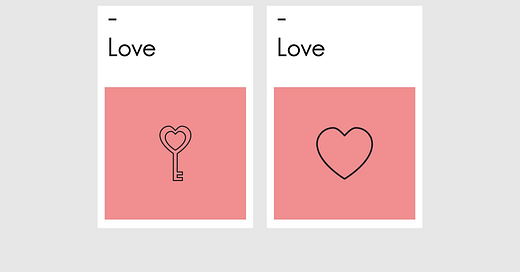Love is about picking who to have your highs and lows with. The assertion that "love is about picking" invites us to explore the intersection of emotion, choice, and commitment—a subject that has captivated philosophers, poets, and thinkers throughout history.
Jean-Paul Sartre famously declared that "we are condemned to be free," emphasising the inescapable nature of human choice. In this light, loving becomes a profound expression of our freedom—we choose whom to love and how to love them.
The concept of Love as an act of picking serves several philosophical functions:
1. Kantian Autonomy: Immanuel Kant emphasised the importance of autonomy in moral decision-making. Viewing Love as a choice aligns with this idea, suggesting that true Love stems from rational deliberation rather than mere inclination.
2. Aristotelian Virtue: For Aristotle, virtue was a habit cultivated through practice. If Love is about picking, it becomes a virtue we can develop through conscious choice and consistent action.
3. Kierkegaardian Commitment: Søren Kierkegaard saw Love as a leap of faith, a commitment made in the face of uncertainty. Picking in Love embodies this willingness to commit despite the inherent risks.
4. Nietzschean Self-Creation: Friedrich Nietzsche encouraged us to create ourselves through our choices. In this view, who we choose to love and how we choose to love becomes a fundamental part of our self-creation.
5. Sartrean Responsibility: If Love is a choice, it aligns with Sartre's emphasis on personal responsibility. We are responsible not only for whom we love but also for that Love's quality and nature.
Consider romantic Love, often portrayed as a force that overtakes us. The philosopher Robert Solomon argued against this "myth of passivity," suggesting that Love is a conscious construction, a series of choices we make and remake over time. This aligns with the idea that Love is about picking—not just once, but continuously.
Or reflect on familial Love. While we don't choose our families, philosophers like Nel Noddings have argued that care—a fundamental aspect of Love—is a choice. We pick how to love our family members(by continually choosing them), even if we didn't pick them initially.
Even in the form of self-love, choice plays a crucial role. Erich Fromm argued in "The Art of Loving" that self-love is not given but cultivated. We must pick ourselves and choose to value and care for ourselves as a foundation for loving others.
Critics might argue that this view of Love as a choice negates Love's spontaneous, emotional aspect.
However, we can counter with Martha Nussbaum's cognitive theory of emotions, which suggests that emotions involve judgments and evaluations. In this light, Love's emotional and choosing aspects are not contradictory but complementary.
The idea that Love is about picking doesn't imply that it's always a cold, calculated decision. Blaise Pascal noted, "The heart has its reasons of which reason knows nothing." The act of picking in Love can involve both emotional intuition and rational consideration.
This view of Love also touches on questions of personal identity and change over time. As Derek Parfit's work on personal identity suggests, we are not the same person from moment to moment. If Love is about picking, it becomes an ongoing process of choosing and re-choosing as we and our beloved change.
From a broader perspective, Love as a choice has significant ethical implications. It suggests that we have a responsibility in our passion—to pick wisely, nurture our choices, and be mindful of the impact of our Love on others and ourselves.
So why do I believe that Love is about picking?
Because it highlights the nature of Love and human agency, it acknowledges the role of Love in our emotional lives, the ongoing nature of Love as a commitment, and the responsibility of Love in our capacity to choose whom and how we love.
When we view Love through this lens, we transform it from a modelling that happens to us into a powerful expression of our freedom and identity. We become active participants in our emotional lives, continually choosing and re-choosing our commitments.
So the next time you find yourself in Love or contemplating Love, remember: in choosing, you're not Love following your heart. You're engaging in a philosophical act, affirming your freedom, shaping your identity, and taking responsibility for one of the most fundamental aspects of human existence.
And isn't that a powerful and empowering way to approach Love?




